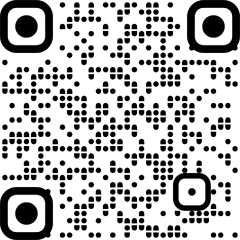AI can help early detection of heart ailments and plan treatment, ET HealthWorld

AI can help early detection of heart ailments and plan treatment, ET HealthWorld
[ad_1]

New Delhi: The integration of artificial intelligence (AI) in cardiology has the potential to transform the way heart diseases are detected and treated. AI can enable earlier detection, allowing for proactive measures to be taken before the condition worsens. Moreover, AI can help personalise treatment plans, tailoring them to each patient’s specific needs and characteristics, ultimately improving the effectiveness of treatments and optimising patient care.
This was stated by experts at the two-day Global Cardiology Summit, ‘Cardiology Summa2024’, organised by Max Healthcare in collaboration with Mayo Clinic, a medical institution based in the United States.
Dr Balbir Singh, a Cardiologist at Max Hospital, highlighted the immense potential of AI in the medical field, noting that the full extent of AI’s capabilities is yet to be understood and explored. He used the example of angiography, a common diagnostic procedure in cardiology, to illustrate how AI can enhance decision-making processes.
Dr Singh further discussed the practical applications of AI in cardiology, particularly in imaging techniques, explaining how AI can streamline the analysis process and provide valuable insights. “We used to do imaging, we used to get the image, we used to analyse by ourselves, putting our brains into it. Now the AI can quickly tell us that look, calcium is here, thrombus (blood clot) is here. Without us putting too much effort into it. It will also suggest that this area needs a different kind of treatment from other areas.”
AI also has the potential to revolutionise the way we monitor and treat patients with heart failure. AI can be used to analyse a patient’s voice and detect changes that indicate whether their condition is improving or deteriorating.
Additionally, AI can be used to analyse ECGs and predict patient outcomes. The Mayo Clinic conducted a study in which they fed a large number of ECGs and corresponding patient data, including survival rates and rehospitalisation, into an AI system. The AI was able to identify patterns that are not easily detectable by the human eye, allowing for more accurate predictions of patient outcomes.
Dr Gurpreet Sandhu, Vice Chair, Cardiology, Professor of Medicine, Mayo Clinic, acknowledged the dynamic nature of cardiac care in India, which has witnessed significant advancements in recent years, with the availability of top-tier clinical services and cutting-edge technologies to tackle the increasing prevalence of cardiovascular diseases.
Dr Sandhu further highlighted the collaborative educational efforts between Mayo Clinic and Max Healthcare, which aim to reinforce their shared goals of bolstering the global cardiovascular health ecosystem. This partnership seeks to enhance the knowledge and skills of healthcare providers, ultimately leading to improved patient outcomes and a more robust healthcare infrastructure equipped to address the challenges posed by heart disease.
[ad_2]






